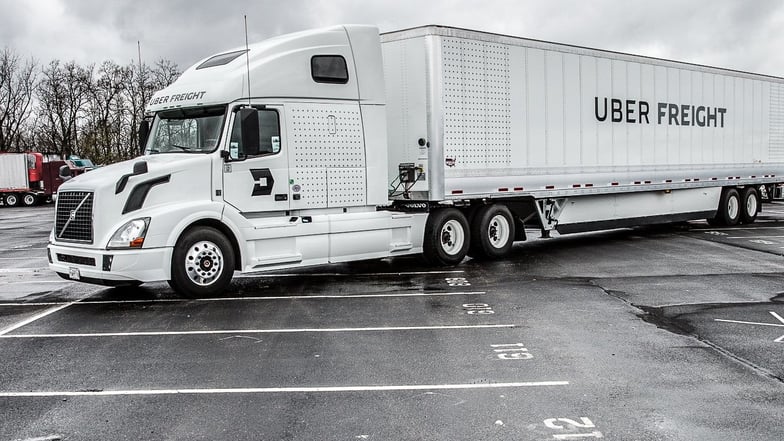REDWOOD LOGIN
Redwood PortalLTL
SCS
SCS Support
Rockfarm
There has been plenty of digital ink spilled about the future of the freight industry, particularly that of freight-share technology. Uber Freight is the poster-child of the freight sharing concept. Launched as an off-shoot of its ride-share platform last year with much fanfare, Uber Freight now finds itself in a questionable predicament. If Uber freight fails, what will this mean for the future of tech-driven supply chain solutions and the freight industry in general? This article will explore these questions as well as the issues underlying them. Before we do that, let us perform a quick recap on freight share and its operations.

The principal idea behind freight share is a union with the sharing economy and co-loading strategies. Uber pioneered the idea of ride-share technology and as a result, changed the face of personal transportation. Uber freight utilizes the same ride-share algorithm technology to match trucks with freight. Basically, the app works as a mobile matchmaker of supply and demand. The trucks are then loaded in what is known as a co-loading strategy. Co-loading is essentially the sharing of the space in a truck or container and the cost is divided according to each’s respective portions of the transport. How is this different than LTL you may ask? Well LTL largely utilizes the hub-and-spoke network of distribution centers to break down and consolidate freight. Co-loading, on the other hand, groups shipments via multi-stop truckloads instead of at distribution centers thereby avoiding distribution center downtime. Freight share has been gaining considerable attention due to the increasing capacity crunch, exacerbated by the drive shortage. Shippers and carriers are both tenaciously searching for excess capacity whenever it can be found and freight share offers the promise of capitalizing on bits of excess space on trucks. It is estimated that over 30% of available capacity is utilized. Uber Freight and other similar platforms seek to leverage their matching algorithms to capture this excess capacity and match it with applicable freight customers. This idea sounds phenomenal in theory, but in execution, there are many issues that lead to the questioning of the sustainability and practicality of freight share.
Uber has never been profitable, which isn’t necessarily a death sentence for the tech companies of today, but it continues to spill red ink. Uber’s losses in 2017 were estimated at over $4.5 billion, a 60% rise from last year’s $2.8 billion. This continued financial hemorrhaging is obviously unsustainable. The various PR nightmares and allegations of sexual harassment from passengers are not helping the optics of the situation either. A possible signal of the imminent demise of Uber Freight is the company’s freight head, Lior Ron is leaving the company.
The possible failure of Uber Freight is perhaps indicative of some of the shortcomings of the freight share concept. The much-heralded application of ride-share technology may have been premature in its celebration. Ironically, much of the criticism towards freight share is its lack of business intelligence options. Uber Freight offers little more than location tracking and vehicle specifications. Other more established freight management companies offer vastly more business and supply chain intelligence. With the continued growth of AI in supply chains, this problem will become only more obvious. Another issue with Uber freight is its lack of customization for specific customer needs, specifically regarding carrier selection. Most shippers don’t want their freight to be picked up by just any carrier. They want to select the best carrier according to their specific needs or criteria. This type of discriminatory selection is what is known as a closed network. Closed networks are built based o familiarity and trust and are designed to be as reliable and variance free as possible. Closed networks are somewhat antithetical to freight share. This is because closed networks prevent the advantage of broad selection in carrier catalogs that companies like Uber Freight offer.
If Uber Freight shuts down it may signal one of two things. First, freight share may recede from the marketplace as more companies become skittish against utilizing the technology. Second, freight share companies like Uber Freight must adapt to customer demand by employing more custom solutions to its users as well as applying more stringent vetting operations on its carrier pool. The problem with this strategy is that goes against the original advantage of freight share, that of broad mass selection.
It will be interesting to see what the future holds for Uber Freight and freight share. Redwood Logistics will continue to monitor the situation as well as other market trends in the freight and transportation industry. If you have any more questions on this subject or any other topic in the supply chain, than please contact us today!